The house price boom in five charts
Demand continues to outstrip ‘stock-starved’ housing market
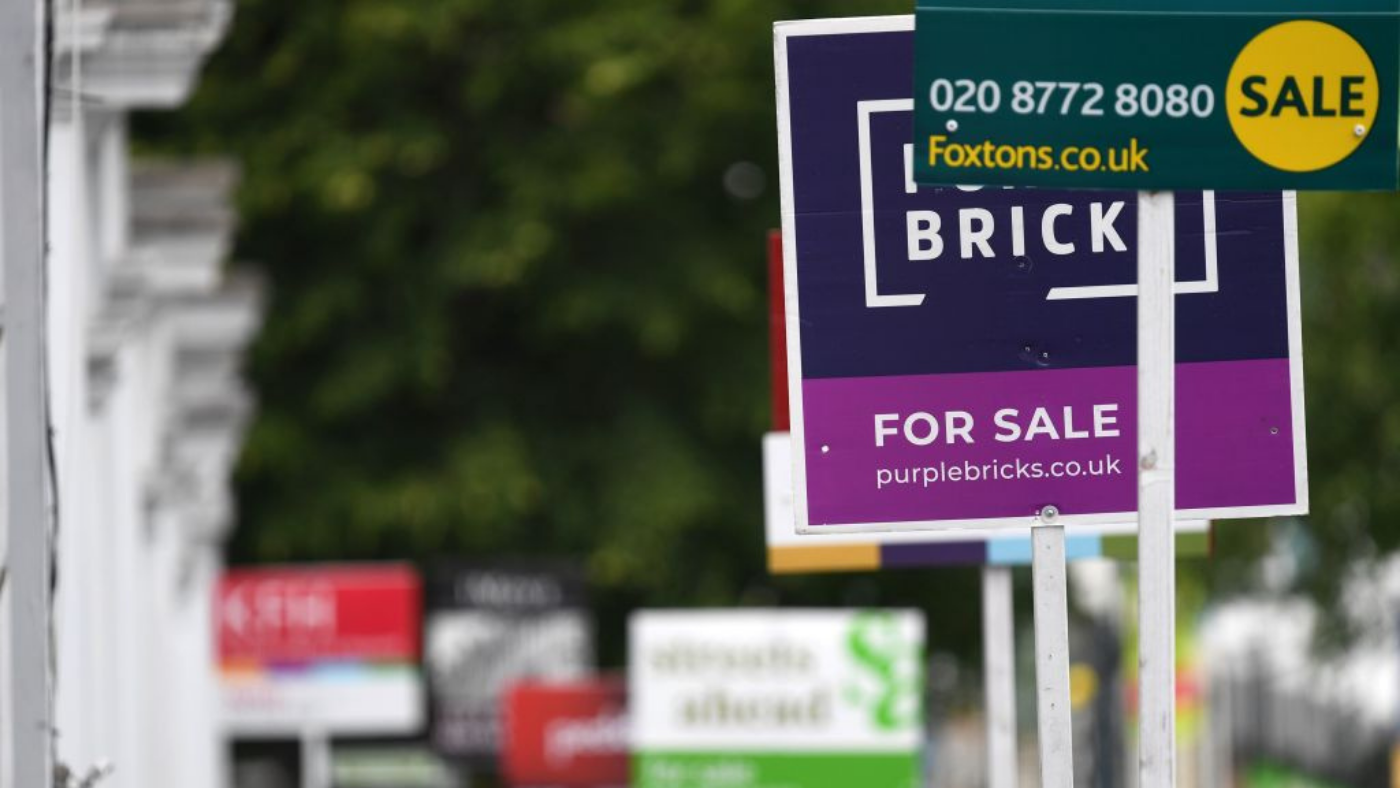
A free daily email with the biggest news stories of the day – and the best features from TheWeek.com
You are now subscribed
Your newsletter sign-up was successful
Lockdowns and the largest fall in GDP for 300 years failed to slow the UK’s housing market over the past year.
In spite of the turbulent financial backdrop, “house prices appear to have defied economic gravity”, said The Guardian. And this has been “the year of the power buyer”, according to Rightmove’s director of property data Tim Bannister.
“Those in the most powerful position to proceed quickly and with most certainty” are “ruling the roost over other buyers”, he said. Meanwhile, buyers without a sale of their own home secured are “being out-muscled by buyers who have already sold subject to contract”, Bannister added.
The Week
Escape your echo chamber. Get the facts behind the news, plus analysis from multiple perspectives.

Sign up for The Week's Free Newsletters
From our morning news briefing to a weekly Good News Newsletter, get the best of The Week delivered directly to your inbox.
From our morning news briefing to a weekly Good News Newsletter, get the best of The Week delivered directly to your inbox.
And the changes in buying trends initially seen as a result of coronavirus restrictions have continued. “With hybrid working establishing itself as a fixture of post-pandemic working life,” said Peter Beaumont, chief executive of The Mortgage Lender, in the Evening Standard, “the race for space rolls on.”
But what’s really been driving the housing market for the past 30 years is “cheap money”, said The Spectator’s Ross Clark. “We have not had a prolonged period of rising interest rates in all that time,” and, as a result, “prices are really no higher than they were three decades ago”.
“Just what would finally bring the seemingly endless boom in house prices to a halt?” asks Clark. “Surely” it would be a period of rising interest rates, and with some estimating inflation will rise to 6% next year, “it is easy to argue the era of cheap money really ought to be at an end”.
“It is possible to imagine scenarios whereby inflation becomes more sustained,” said University College London economist Josh Ryan-Collins writing in The Guardian. But an interest rate rise to 2% “could still have damaging impacts on the economy”. How, asked Ryan-Collins, “did we end up in a situation where small rises in interest rates… could raise such serious concerns for the macroeconomy?”.
A free daily email with the biggest news stories of the day – and the best features from TheWeek.com
No. 10 is “so scared of the chaos that a housing bust would unleash that it is unlikely to let it happen,” said MoneyWeek.
Raising interest rates could “detonate the housing market bomb” that’s “planted” beneath the economy, said Clark. “Don’t expect the government to sit idly by”; surely it will “come up with wheezes” to keep the housing market afloat, he said.
Costs by country
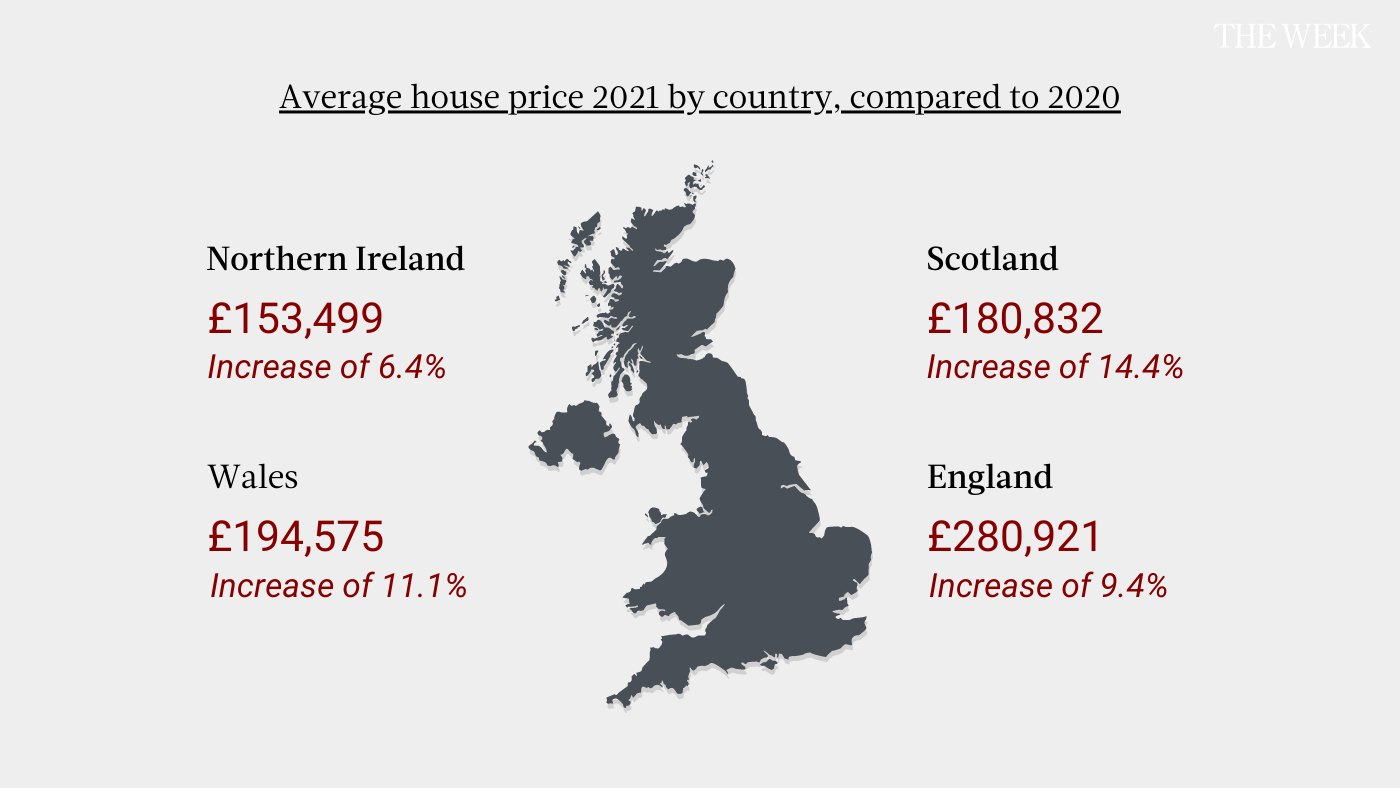
Average property prices across the UK have hit a record high of £338,462 according to data collated by Rightmove. But the new average – a 0.3% increase on last month’s figures – is only £15 higher than that reported in July this year, with prices finally showing signs of stabilising.
“Stamp duty breaks and a rush for larger homes” has fuelled the rise in house prices, said The Guardian, with every country in the UK seeing a significant annual increase.
The tax holiday may now be over, but demand hasn’t slowed. The market is “stock-starved”, said Bannister, and the competition between buyers is fierce, at “double what it was this time in 2019”.
Asking prices
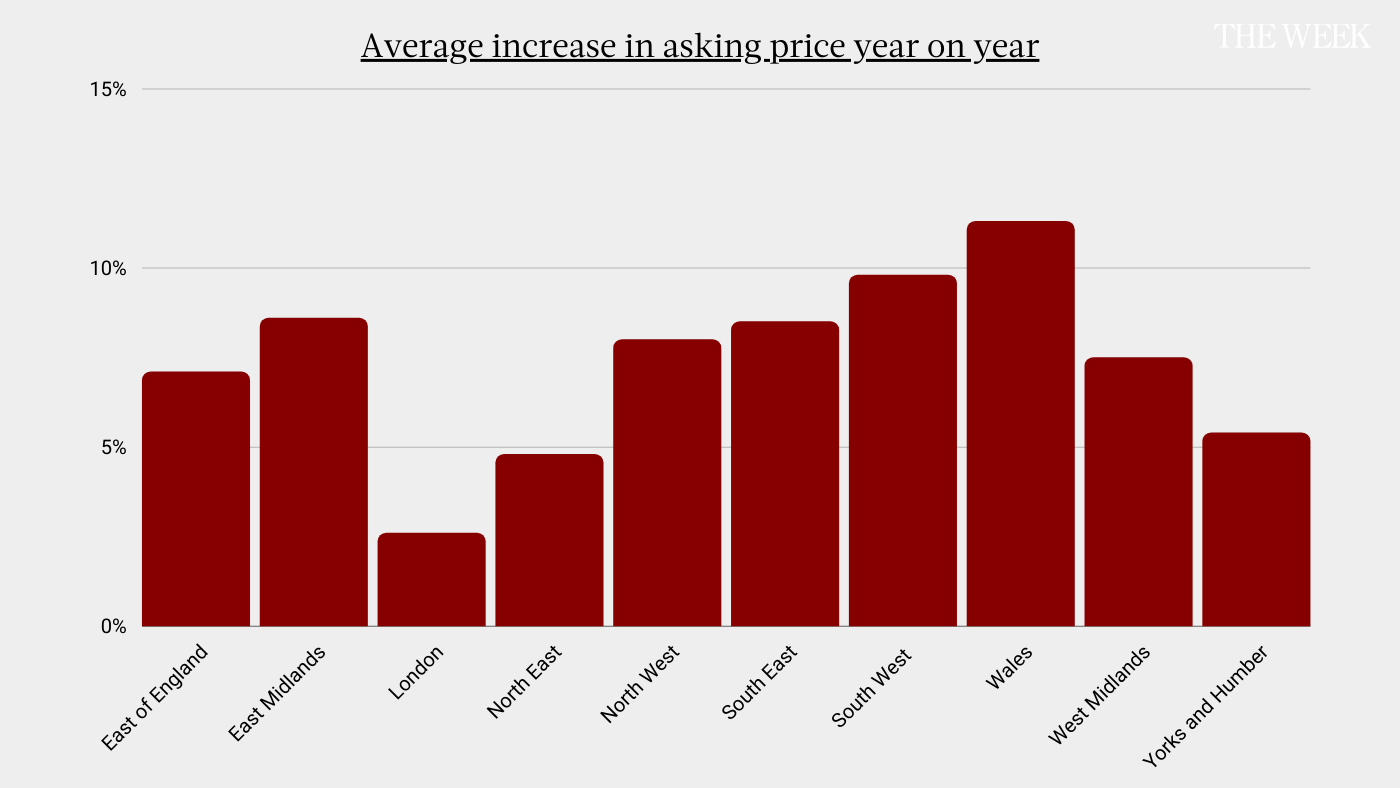
The average increase in property prices across the UK during the past 12 months has been lowest in London, “a pattern that has been seen since the coronavirus hit, with buyers increasingly looking for more space after months of confinement in their homes”, said Bloomberg.
In Wales, some areas are seeing “unprecedented” rises in house prices, said Wales Online. It’s not the case that second home owners are “pricing out longstanding residents”, which had been “initially seen” as the pandemic eased.
Now, estate agents say people are hunting out family homes “in nice places” and they are “willing to pay for it”.
Price tag by house type
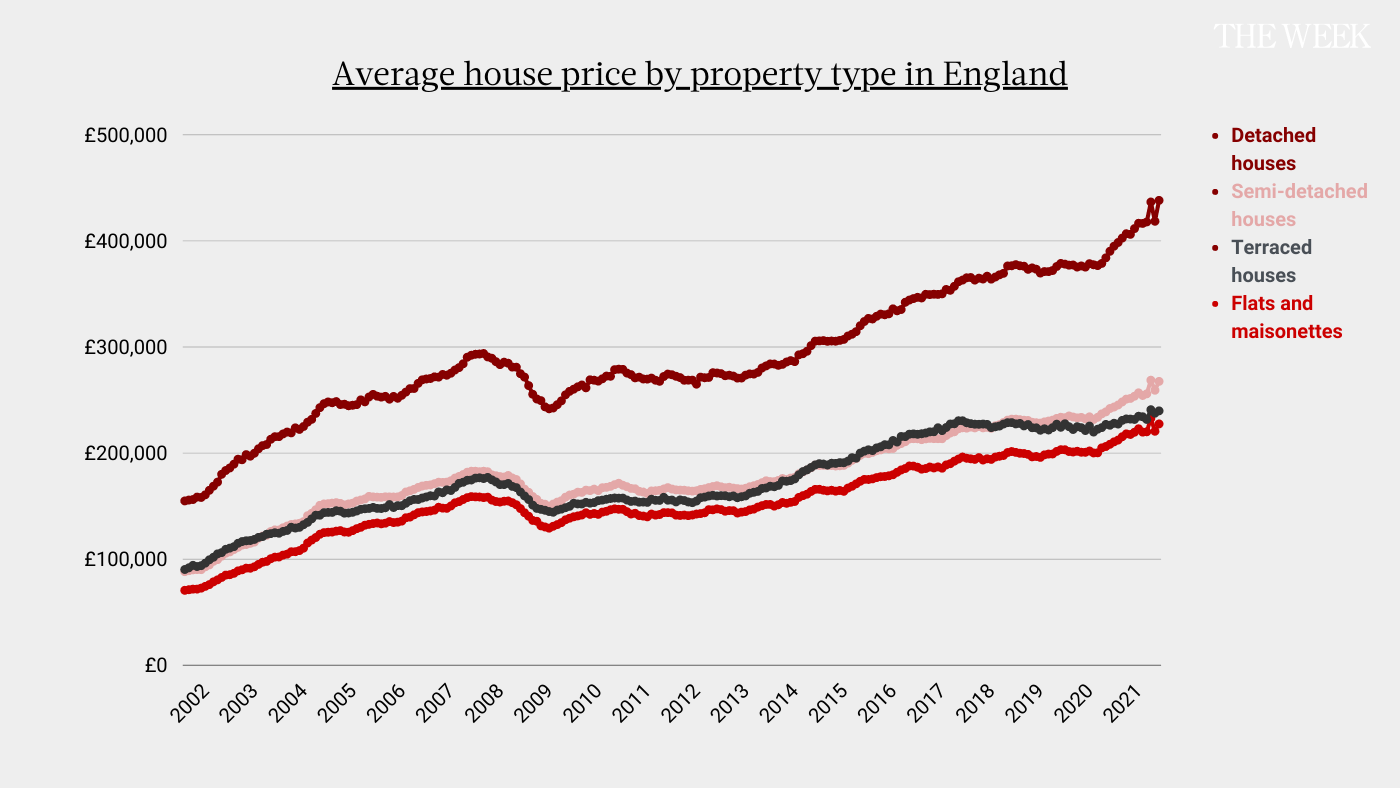
Asking prices have increased across all types of properties on the market, but detached and semi-detached peroperties will set buyers back the most.
Despite buyer interest in flats falling at the start of the pandemic, Rightmove reported an increase in demand for smaller properties in urban locations between January and April this year.
“There has been no big exodus of office workers liberating from a life of community,” according to research published by the London School of Economics in March, said the Financial Times. The demand for detached houses with gardens is a “long term trend”, and properties between 20 and 40km from central London have continued to increase in price.
The “long-term outlook for cities is good” too, but a less restrictive planning system is needed to avoid a scenario where housing remains “unaffordable and increasingly so”, said LSE’s researchers.
True cost of mortgages
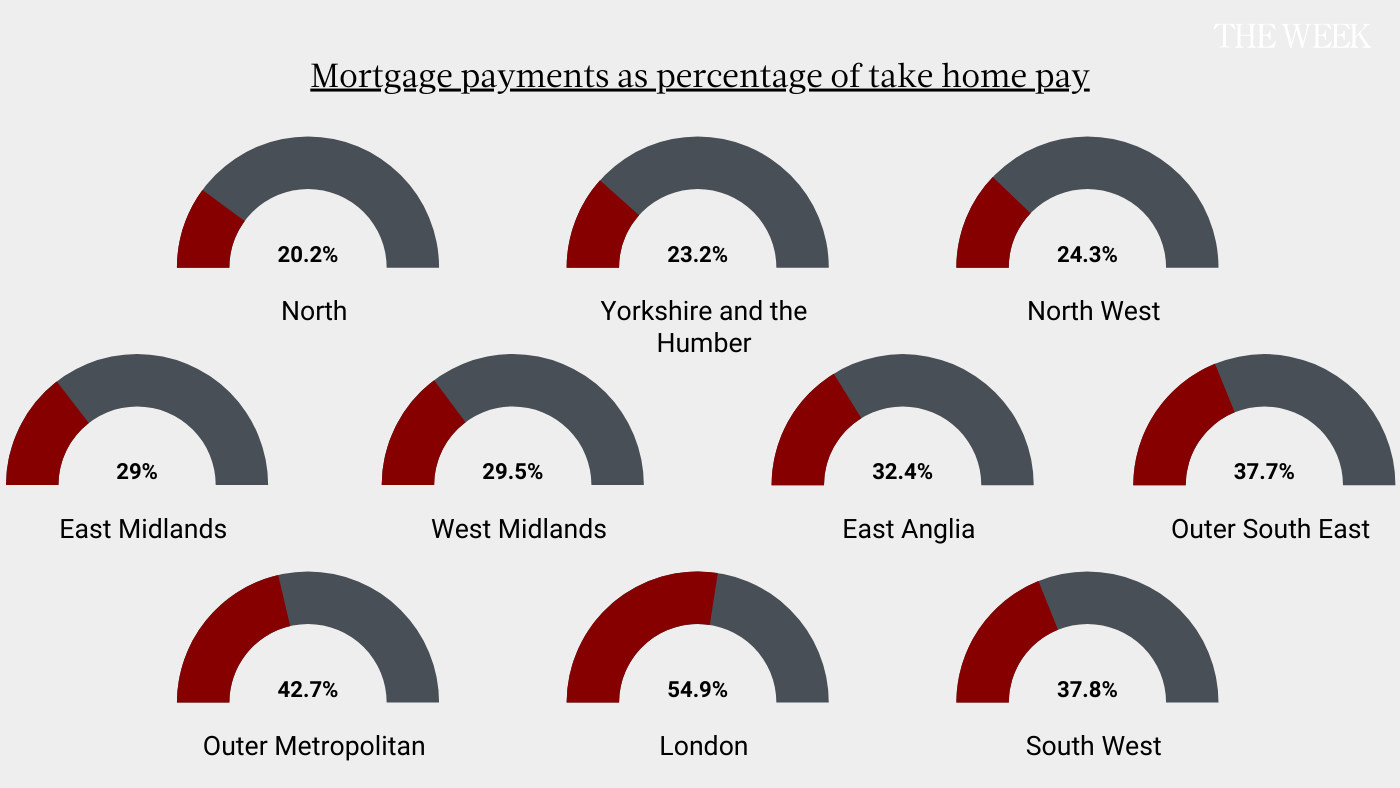
It’s widely recommended that homeowners spend no more than 28% of their take-home pay on mortgage repayments and housing expenses. Ticking that box “makes you a competitive buyer”, said Business Insider.
Londoners are spending the most on their mortgages, according to Nationwide’s data – over half of their take-home pay, on average. Homeowners in the north of England are parting with less than half the amount of disposable income than those in the capital.
The south is generally a pricier market, but the averages in the Midlands also creep just over the 28% recommendation.
Market rises
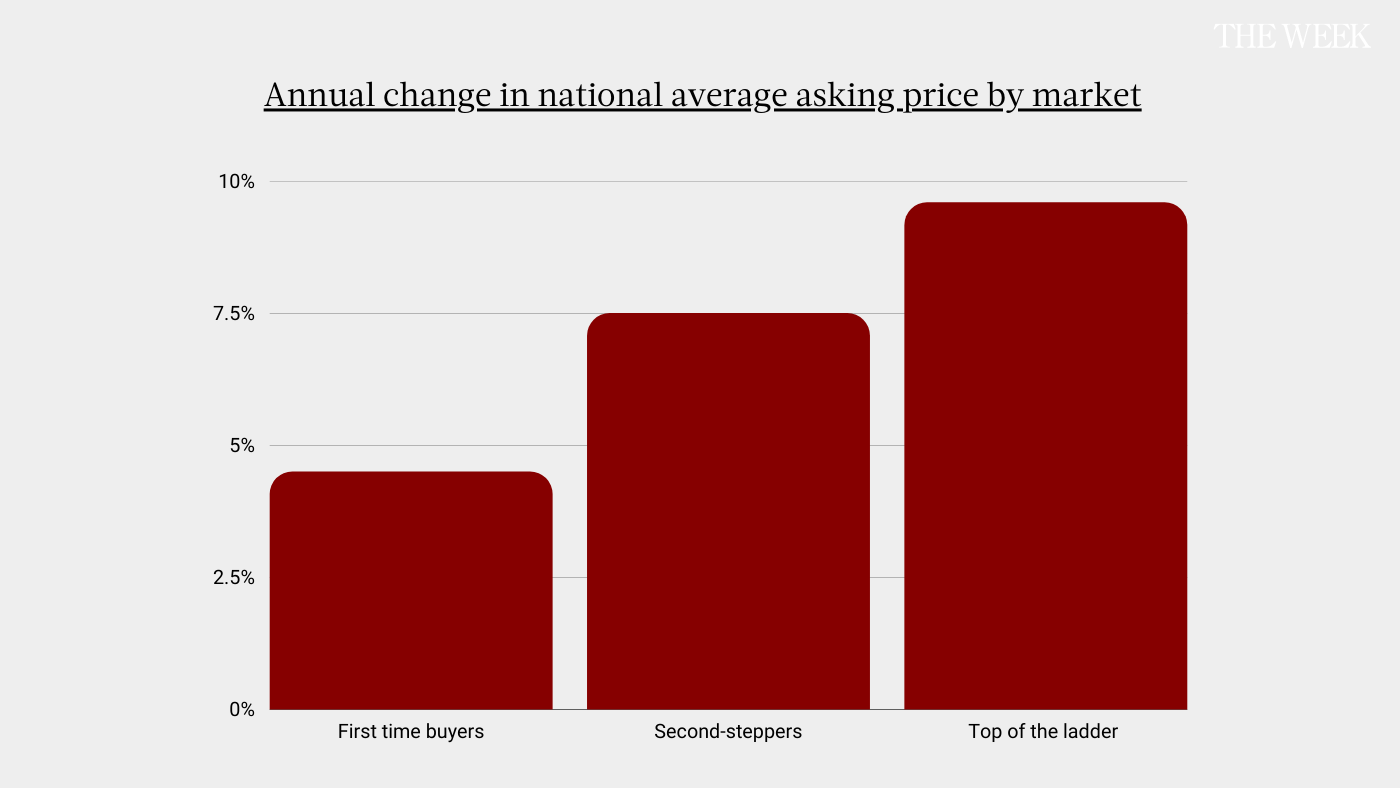
Estate agents have seen first time buyers “priced out” of the property market in the past year, the Evening Standard said, though the government’s 95% mortgage guarantee scheme helped some to get their foot on the ladder.
However, those eligible for the scheme do face some risks. “A small fall in the value of the home could mean that you are in negative equity,” making it difficult to move home or secure another fixed-interest loan, said The Observer.
Julia O'Driscoll is the engagement editor. She covers UK and world news, as well as writing lifestyle and travel features. She regularly appears on “The Week Unwrapped” podcast, and hosted The Week's short-form documentary podcast, “The Overview”. Julia was previously the content and social media editor at sustainability consultancy Eco-Age, where she interviewed prominent voices in sustainable fashion and climate movements. She has a master's in liberal arts from Bristol University, and spent a year studying at Charles University in Prague.